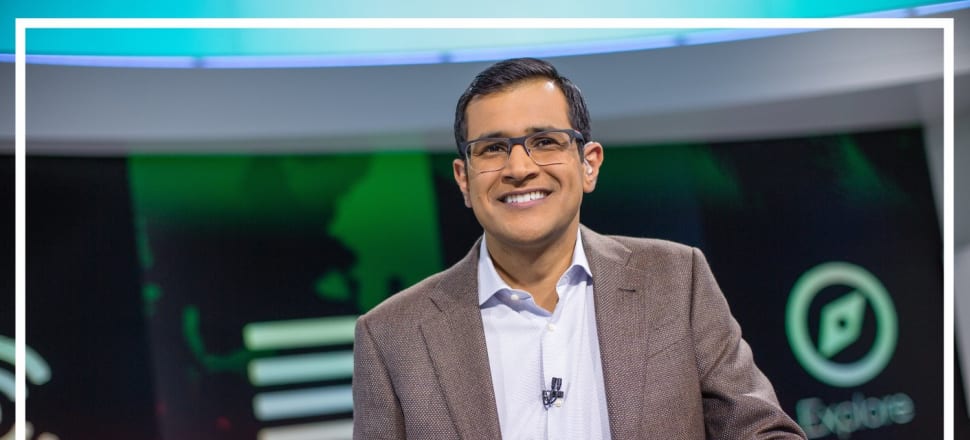
TVNZ’s former head of news Paul Yurisich didn’t do reference checks on disgraced breakfast host Kamahl Santamaria, according to an independent inquiry commissioned by the state broadcaster. But Mark Jennings asks whether he has been unfairly scapegoated.
It is hard not to have sympathy for Paul Yurisich. Most bosses make hiring mistakes, often costly mistakes, but they don’t usually end up resigning over it.
When allegations were made against Kamahl Santamaria, Yurisich acted quickly. The breakfast host, who had been in the job for just 32 days, was sent home on leave while the claims were investigated. Yurisich accepted Santamaria’s resignation a short time later.
Matter over? No. TVNZ’s attempt to slide under the radar by saying Santamaria had gone on leave due to a “family emergency” blew up in its face, and then reports emerged that Santamaria had behaved inappropriately towards women at his former workplace, Al Jazeera, in Qatar.
TVNZ’s own news service started demanding answers from management that weren’t forthcoming and the rest of the media piled in as the smell of blood wafted around Hobson St.
TVNZ's new chief executive Simon Power put a temporary bandage on the bleeding with the time-honoured method – an independent review.
The shutters went up at TVNZ and the story died down while employment lawyer Margaret Robins set about her work. Paul Yurisich went, or was put, on extended leave.
Robins’ review took seven weeks to complete and is hardly condemning of Yurisich.
It turns out that TVNZ’s recruitment policies didn’t apply to the hiring of key presenters. Robins found the policy that ensures “fair and open recruitment of talent from the broadest pool of as yet unidentified candidates” clashed with “discreetly recruiting an identified candidate for a key presenter role.”
Robins said “TVNZ’s historic practice for recruiting key presenters (going back to at least 2013) was to tailor a suitable process on a case by case basis.”
Normally, TVNZ’s policy requires two references but this is not the case with presenters.
“The absence of two independent verbal references was in accordance with TVNZ’s historical practice in recruiting well known presenters.”
According to Robins, Yurisich’s biggest failing was that he did not consult sufficiently with the Editor of Content, the Executive Producer of Breakfast and various HR people.
This is an odd finding unless Robins believes that these people had knowledge of Santamaria’s inappropriate behaviour in Qatar and weren’t given an opportunity to reveal it.
This seems unlikely. Newsroom understands that before Christmas 2021 Yurisich had told the executive producer of Breakfast he was keen on hiring Santamaria to replace John Campbell.
It is likely other senior executives, including the Head of Content (a former Breakfast producer) would have heard about Santamaria at that point and if they had known about his prior behaviour would have spoken up.
There is no suggestion Yurisich knew of allegations made by female staff at Al Jazeera even though he worked there at the same time as Santamaria and it is unlikely he would have hired the presenter if he had been told about them.
What Robins seems to be saying is that Yurisich should have taken more heed of the views of his senior producers who preferred other local candidates over Santamaria.
This is borne out by Robins’ statement that “Kamahl Santamaria had virtually no public profile in New Zealand, and due to Covid, he was not screen tested to assess his compatibility with his co-presenters.”
To most news bosses this would be a case of the tail wagging the dog. Producers of news programmes have very specific jobs, often have deep loyalties to staff that work on their shows and they don’t necessarily see the same big picture that a head of news does. Yes, smart news bosses are collaborative but it is not unusual for them to disagree with a producer on presenters.
Sometimes, presenters don’t have immediate rapport with co-hosts but it grows over time if all parties have an open mind. Robins’ lack of knowledge of the TV industry may be a factor in this finding, but collective decision-making in newsrooms can end in paralysis – a condition that competitors wistfully hope for.
If TVNZ adopts Robins’ recommendations, and Simon Power is indicating it will, then recruitment of presenters will be done by a panel.
“Ultimately” according to Robins’ recommendation “the HONCA (Head of news and current affairs) selects or confirms the candidate. The HONCA’s decision is submitted to the Executive Team for approval with a summary of the selection process, any dissenting views and how the selection of the candidate aligns with TVNZ’s news and current affairs strategy.”
One mistake has sparked a bureaucracy.
TVNZ’s news release has also revealed that it has recently added a talent acquisition team to its staff.
On reference checks, Robins found that even if Yurisich had checked two references provided by Santamaria “the outcome is unlikely to have been any different. Kamahl would still have been recruited. Kamahl is unlikely to have offered a referee who might volunteer negative information.”
However, she goes on to say that if Yurisich had consulted more widely and secured two additional references it may have led to “innovative compromises and safeguards.”
What does that mean? What compromises? What safeguards? Is she suggesting Santamaria would have been closely monitored or that a compromise candidate was selected? Not Santamaria but not the executive producer’s preference either?
Robins comes to the conclusion that although Yurisich, in her view, did not consult sufficiently, the fundamental problem was the failure of TVNZ’s recruitment policy to provide a suitable process for the hiring of key presenters.
On that basis, Yurisich could have kept his job but it is likely he lost the appetite to re-join a newsroom where he would have less authority and the shadow of the “Santamaria affair” would hang over him for years to come.
A head needed to roll and Paul Yurisich became the scapegoat.







